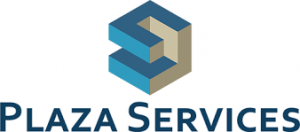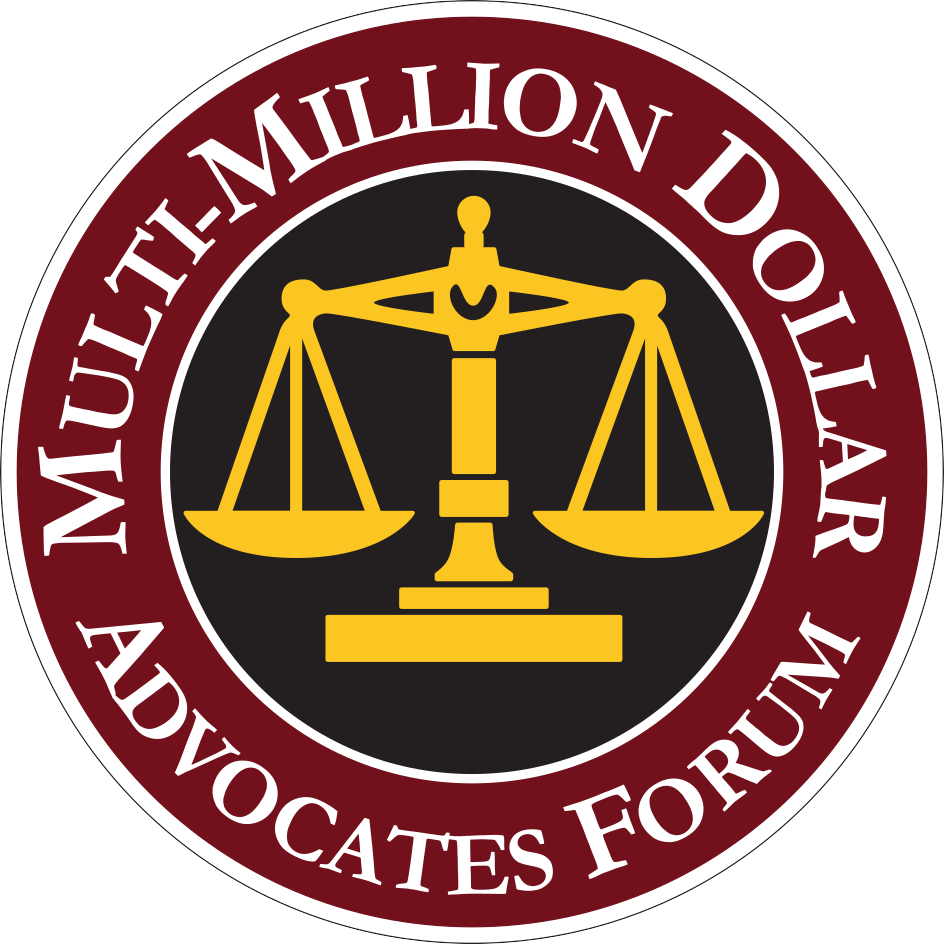Sued By Plaza Services?
We Can Help!

If Plaza Services served you with a lawsuit or sent you a collection letter, you have multiple ways to respond, such as disputing the debt, negotiating a settlement, or defending against the lawsuit in court.
An experienced San Diego debt collector harassment lawyer from Kazerouni Law Group APC will guide you on asserting your rights, protecting your finances, and seeking possible relief under consumer protection laws.
You’re not alone. Kazerouni Law Group has represented tens of thousands of Californians in debt-related legal matters. We are ready to offer a free consultation where you can speak with an attorney about your situation and possible defenses.
Who Is Plaza Services?
Plaza Services is a debt collection agency that buys delinquent consumer accounts, often at discounted rates. The original creditor may have sold your unpaid account to Plaza Services, which then attempts to collect the debt.
Debt buyers like Plaza Services typically operate under the assumption that consumers either don’t know their rights, are too overwhelmed to fight back, or don’t know the debt buyer might lack the necessary documentation to prove the debt.
Why Plaza Services May Sue You

Plaza Services often files lawsuits in civil courts to recover debts they believe people owe. These claims usually involve credit card balances, personal loans, unpaid bills, or other forms of consumer debt.
If you receive a summons or complaint listing Plaza Services as the plaintiff, they claim you owe money under a contract or agreement.
Once they serve you, you generally have a limited time to respond. Ignoring the lawsuit carries serious consequences, including possible wage garnishment, bank account levies, and property liens.
How Kazerouni Law Group Can Defend You
Kazerouni Law Group, APC helps consumers understand their rights and develop the best defense strategy. Even if you believe you owe the debt, you might have valid legal defenses.
The burden of proof rests on the plaintiff, which means Plaza Services must provide accurate, admissible documentation that you’re the correct person responsible for the debt and that the amount sought is correct and within the statute of limitations.
How We Help
- Initial Consultation: We offer a free consultation to assess your circumstances. An attorney from our office will review your documents and discuss possible defenses.
- Litigation or Settlement: We can negotiate debt settlement before your court date, often securing more favorable payment terms and reducing the amount owed. If you prefer to dispute the debt in court, we prepare a strong defense to challenge the lawsuit.
- Cost-Effective Representation: We charge 10% of the debt or $850, whichever is greater, to negotiate. If we represent you in court, our fee is the same rate, plus any court filing fees. Payment plans are available.
- Consumer Protection Claims: If Plaza Services, or any collector working on their behalf, violated debt collection laws such as the Fair Debt Collection Practices Act (FDCPA) or the Rosenthal Fair Debt Collection Practices Act (RFDCPA), we may defend you at no cost or even recover damages for you.
What Happens if You Ignore the Lawsuit?
Some consumers hope that if they do nothing, the lawsuit will go away. Unfortunately, that rarely happens. The court may enter a default judgment against you when you miss the deadline to respond.
Once the court issues a default judgment, Plaza Services can:
- Garnish your wages
- Levy your bank accounts
- Place a lien on your home or other property
Addressing a lawsuit allows you to negotiate a manageable repayment plan, dispute the validity of the debt, or even settle for a reduced amount. Ignoring it only hands victory to the collector.
Know Your Rights Under Debt Collection Laws

The FDCPA and California’s RFDCPA protect you from harassment and abuse by collection agencies like Plaza Services. Courts enforce these protections to stop unfair or deceptive tactics.
Below are some ways debt collectors can violate the law:
- Repeated phone calls aimed at harassment
- Making false or misleading statements about the debt
- Threatening arrest or criminal charges for unpaid debt
- Contacting your friends, family, or employer in a way that reveals private information
- Calling very early in the morning or late at night
If you experience these tactics, let us know. Unlawful behavior by Plaza Services or any collection agency may open the door for a counterclaim or lawsuit against them.
Violations of consumer protection laws can result in:
- Statutory Damages: If the collector’s actions broke the law, you could be awarded a set sum per violation.
- Actual Damages: If harassment or misrepresentations caused harm, you might receive compensation.
- Attorney Fees: Sometimes, the collector may need to pay your attorney’s fees and court costs.
At Kazerouni Law Group, APC, we examine every angle to see whether Plaza Services or its agents crossed any lines. We look for phone call logs showing repeated harassment, letters with deceptive statements, or messages that disclose private debt information.
If we find violations, we can assert those claims to your advantage.
The Role of the TCPA (Telephone Consumer Protection Act)
The Telephone Consumer Protection Act (TCPA) limits unsolicited calls and texts with automated dialing systems or pre-recorded messages. It also established the National Do Not Call Registry (DNC), which aims to reduce telemarketing calls.
Under the TCPA, you can sue telemarketers or collectors who violate these rules by making auto-dialed or pre-recorded calls without your consent.
- Pre-Recorded Calls: If you answer and hear an automated or robotic voice, it may violate the law if you never gave them permission to contact you in that manner.
- DNC Cases: You could have a valid claim if you registered your phone number on the National Do Not Call Registry and received two or more unsolicited calls or texts within 12 months.
Kazerouni Law Group focuses on these two types of TCPA cases. We also handle text-based TCPA cases if they involve the Do Not Call Registry.
If Plaza Services called or texted you in ways that break the rules, contact us for a review of your potential claim.
Why Choose Kazerouni Law Group?

Kazerouni Law Group, APC, has a longstanding commitment to consumer advocacy. Our experience covers every stage of debt litigation, from initial negotiation to trial. We also stay current on changes in consumer protection laws so we can use the latest legal tools to defend you.
Many people feel paralyzed when they receive a debt collection lawsuit. The idea of court proceedings, hearing dates, and potential legal fees can trigger stress.
Negotiation or settlement can lower the total owed or arrange more manageable payments. If you decide to fight in court, we leverage legal defenses that can substantially weaken the collector’s position.
Speaking with an attorney is the simplest way to understand what path makes sense for your situation. Some clients choose to settle and move on; others decide to fight. Either way, hire professional legal guidance to combat aggressive debt collectors.
How a Lawsuit Typically Proceeds
Understanding the basic stages of a debt collection lawsuit can help you plan.
Here is an overview:
- Service of Summons and Complaint: You receive court documents stating that Plaza Services is suing you.
- Response Deadline: You have a fixed number of days (often 30, but this varies) to respond with an Answer or another type of pleading.
- Discovery Phase: Both sides exchange information, documents, and requests for admissions to clarify facts.
- Settlement Discussions: At any point during litigation, either party may propose a settlement.
- Trial or Resolution: If no settlement is reached, the case proceeds to trial. The judge or jury decides whether you owe the debt and, if so, how much.
Ignoring the summons leads to a default judgment, which allows Plaza Services to use aggressive collection methods. A timely response and a robust defense keep your options open.
Common Defenses in Debt Collection Cases
If you decide to challenge Plaza Services in court, possible defenses include:
- Wrong Person: The debt may not be yours. Debt buyers often rely on outdated or inaccurate data.
- Incorrect Amount: The collector might inflate the amount owed by adding unauthorized interest, fees, or penalties.
- Statute of Limitations: Depending on the type of debt, debt collection lawsuits must be filed within a certain time frame. If the limitation period has passed, the claim may be barred.
- Lack of Documentation: The burden rests on Plaza Services to prove the debt. If they fail to provide adequate documentation, the case can be dismissed.
Steps to Take if Sued by Plaza Services

- Read the Summons Carefully: Note deadlines and the court where the suit was filed.
- Gather Records: Locate contracts, billing statements, and any letters or emails related to the debt.
- Document All Communications: Keep phone records, voicemails, and copies of any letters or messages from Plaza Services.
- Contact a Lawyer: An attorney can evaluate your defenses, advise you on settlement, and draft an Answer on your behalf.
- Consider Filing a Countersuit: If Plaza Services violated your rights, you may have grounds for a counterclaim.
Real-World Impact of Taking Action When Sued by Plaza Services
Those who defend themselves against debt collection lawsuits, like those from Plaza Services, often see better outcomes.
Fighting back might involve settling for a much lower amount, paying off the balance under more favorable terms, or getting the case dismissed entirely when the collector lacks evidence.
Sometimes, consumers turn the tables by proving violations under the FDCPA or TCPA, leading to a monetary award.
Frequently Asked Questions About Debt Collection
The debt collection process can feel confusing and intimidating. Below are common questions people have about how collectors can behave.
Can a debt collector say they’re from the government?
No. Pretending to be a government representative is illegal and misleading.
Can a debt collector lie to you?
No. Debt collectors cannot lie about who they are, how much you owe, or the consequences of not paying. Any form of deception can violate consumer protection laws.
Is it illegal to not pay a debt?
No. Failing to pay a debt is not a crime. You can be sued in civil court but not arrested solely for an unpaid debt.
Can a debt collector lie about how much you owe?
No. Misrepresenting the balance or adding unauthorized fees is illegal. If you suspect the figure is incorrect, ask for the amount to be validated.
Can a debt collector threaten to take your property?
No. Unless a debt collector has legal authority, such as a court judgment, they cannot threaten to seize property. Even with a judgment, they must follow strict procedures.
Can a debt collector call my boss?
No. Contacting your employer to discuss your debt can break the law except for limited reasons, such as verifying employment status or wage garnishment after a valid court order.
Can a debt collector call my friends?
No. Debt collectors generally cannot share your debt details with friends or acquaintances. The law restricts contact with third parties to locating information only, without mentioning your debt.
How do I dispute a debt?
Call a lawyer who can send a written dispute, request validation of the debt, and document every step to protect your legal rights.
Contact Kazerouni Law Group for a Free Consultation and Case Evaluation
Receiving a lawsuit from Plaza Services can feel stressful, but it doesn’t have to end with a default judgment.

Kazerouni Law Group is dedicated to helping Californians understand their legal rights against debt collectors. Whether you’re interested in negotiating a settlement or fully defending yourself in court, we provide the guidance and representation you need.
Harassment, repeated calls, false statements, and unauthorized contact with your employer or loved ones are unacceptable practices under the law. You may have powerful defenses and claims against Plaza Services. The first step is taking action. Fill out the evaluation form to the right or call us at (800) 400-6808 to set up your free consultation. A personal injury attorney from our office will speak with you as soon as possible, often immediately or by the next business day. We look forward to hearing your story and finding the best path forward.